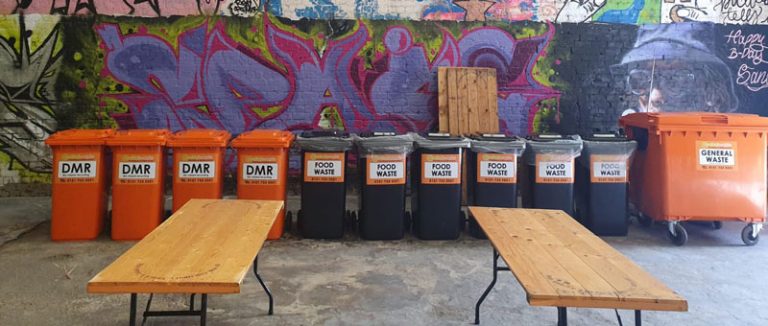
How Is Commercial Food Waste Collected in Liverpool?
For a business involved with food production, the issue of waste collection will feature high on your priorities. We take a look at what your options are for food waste collection and disposal in Liverpool and what it means for your business.
Does Liverpool City Council collect food waste?
For all business owners the advice of Liverpool City Council is pretty clear: ‘businesses have a duty to organise their own commercial waste removal and recycling’.
At present there is no provision from the council to offer food waste collections either commercially or domestically. This means the decision for organising what happens to your food waste is the responsibility of the business owner alone.
Currently, Liverpool Streetscene Services Ltd (LSSL) provides a paid for commercial waste service. This includes most types of commercial waste but, importantly, this does not include food waste like cooking oil waste, dairy produce, animal feed, out of date supermarket produce, and cafe and restaurant waste.
Do I need a licence for my business’ food waste?
In a nutshell, yes. Liverpool City Council regularly review the practices of businesses that produce food waste and conduct checks to ensure that businesses have a signed agreement in place with a licensed waste carrier.
Business are legally required to have this documentation that proves they have a valid refuse agreement in place.
Cooking oil waste has further legislation involved with it, as simply disposing of it down the drain will likely result in legal action taken against the business.
How do I store commercial food waste?
The guidelines for food waste storage are straightforward. It must be done safely and securely:
• Stored in a secure place
• Use containers that prevent waste escaping
• Clearly label containers by waste type
• Use waterproof lids to prevent spillage and contamination.
A food waste carrier will provide the right amount of containers for the type of commercial food waste you produce. These can either be wheelie bins for single use materials as well as mixed materials. For liquid waste, lined recycling bins can be provided to ensure spillages and leaks are prevented. Bin sizes vary, from smaller 240 litre capacities to much large 1100 litre ones depending on the size and needs of your business.
What happens to my food waste after it is collected?
The process for most food waste recycling involves transporting it to a facility that can safely break down the food through something called anaerobic digestion. This breaks the food down into component parts and enables it to be converted into fuel. Imagine a giant compost involving microorganisms, heat and oxygen which work together to speed up breaking down the chemicals within foodstuffs.
What this does is to ensure that food waste doesn’t get into the sewage or contaminates other forms of waste, like landfill. The byproduct of properly processing waste food provides additional fuel which can be used as a power source for the national grid.
Cooking oil collection has even more benefits. Not only will a waste carrier collect it, they will often pay businesses to do so. This makes cooking oil collection a must for restaurants, chip shops, fast food outlets, cafes and hotels.
A reliable waste carrier will be able to recycle cooking oil and convert into biofuel. The oil then becomes a cleaner form of fuel, better than diesel with reduced emissions. It is also a huge part of the UK’s commitment to reduce greenhouse gases and its renewable energy policy.
What are the environmental benefits of food waste collections?
In 2018 food waste in England accounted for over 10 million tonnes, all of which has to be dealt with somewhere. While it is logical to assume that food is biodegradable, decomposing food produces huge amounts of CO2 and Methane, all of which contributes to global warming if not dealt with properly.
Reducing landfill has become a hot environmental topic. Not only are landfills unsightly and smelly, they also risk contaminating groundwater through a toxic liquid byproduct of landfill waste called leachate.
Any company associated with food production has to be aware of the best method to dispose of it. In the case of cooking oil it can be financially beneficial, as well as for the environment which is already straining to cope with world’s waste demands.
Having a reliable and easy way of organising your commercial food waste is a huge benefit to your business. It is the most sustainable and cost-effective method of managing a waste product that can harmfully impact the environment. Choosing the right waste carrier can ensure your business is both sustainable and ethical.
